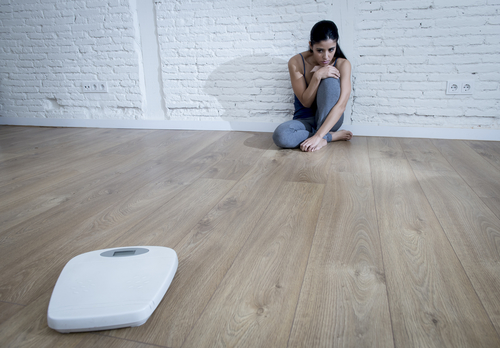Menopause is a big life change, and it comes with a mix of physical and emotional shifts that can be tough to handle. Many women find themselves reaching for a glass of wine or a beer to cope with things like mood swings, sleep troubles, and anxiety. But alcohol can actually make these symptoms worse and add new health risks. This guide explores why alcohol and menopause are a dangerous mix and shares healthier ways to navigate this stage, along with support and resources for anyone who needs them.
Next Steps
If you’re struggling with addiction, you don’t have to face it alone. At Casa Capri, we offer expert, women-centered care in a supportive and nurturing space—designed by women, for women. Our team is here to help you heal with purpose and connection.
Call our admissions team for a free, confidential chat—we’ll even check your insurance and estimate any costs upfront.
Understanding the Link Between Menopause and Alcohol Use
What’s the big deal with menopause and drinking alcohol? As women go through menopause, they experience a wide range of changes—both physical and emotional—that can feel overwhelming. During this time, some may turn to alcohol to cope with stress, mood swings, or sleep disturbances. However, this choice can have serious consequences, as alcohol interacts with menopausal symptoms in ways that may worsen health and increase risk factors. Understanding how alcohol affects women during menopause is essential, especially for those already struggling with alcohol use.
How Alcohol Impacts Hormone Levels During Menopause
Alcohol can significantly alter hormone levels, particularly estrogen, which plays a crucial role in a woman’s body even after reproductive years. During menopause, natural estrogen levels decrease, which contributes to symptoms like hot flashes and mood swings. Alcohol, however, can cause temporary spikes in estrogen levels, which disrupts the body’s natural balance. This can lead to intensified menopausal symptoms and even increase the risk of hormone-sensitive cancers, such as breast cancer. The effect of alcohol on estrogen levels is one of the key ways it can undermine a woman’s health during menopause.
How Alcohol Impacts Menopausal Symptoms
What makes alcohol and menopause a dangerous cocktail, and what’s the link between negative symptoms of menopause and alcohol consumption? During menopause, the body goes through hormonal shifts, mainly involving estrogen and progesterone. These changes lead to various symptoms, including hot flashes, mood swings, and sleep disturbances. Drinking alcohol can exacerbate these symptoms. Alcohol may worsen hot flashes by dilating blood vessels, which makes hot flashes more intense and frequent, adding further discomfort.
In terms of mental health, menopause places women at an increased risk of mood changes and even depression, and alcohol, being a depressant, can heighten these feelings, making it harder to manage daily life.
Lastly, alcohol disrupts the sleep cycle, compounding the sleep difficulties many menopausal women already face, leading to further exhaustion and a decline in overall well-being.
Next Steps
If you’re struggling with addiction, you don’t have to face it alone. At Casa Capri, we offer expert, women-centered care in a supportive and nurturing space—designed by women, for women. Our team is here to help you heal with purpose and connection.
Call our admissions team for a free, confidential chat—we’ll even check your insurance and estimate any costs upfront.
Increased Health Risks When Combining Alcohol and Menopause
The combination of alcohol use and menopause brings heightened health risks. During menopause, women’s bodies become more susceptible to several health conditions, which alcohol can worsen. Menopause leads to decreased bone density, which raises the risk of osteoporosis, and alcohol’s impact on bone health can further increase the likelihood of fractures and bone issues. Heart health is another critical factor during menopause, as the reduction in estrogen levels already increases the risk of cardiovascular issues, and alcohol can elevate blood pressure and cholesterol, posing a further threat. Both alcohol consumption and menopause are linked to higher risks of breast cancer, as alcohol raises estrogen levels, further increasing this risk.
Alcohol and Menopause Medications: Risks Women Should Know
Many women take medications during menopause to manage mood changes, sleep issues, hot flashes, or anxiety. While these treatments can be helpful, alcohol may interfere with how they work or intensify their side effects. Mixing alcohol with antidepressants or anti-anxiety medications can increase drowsiness, worsen mood instability, and heighten emotional lows. Similarly, combining alcohol with sleep aids, migraine medications, or blood pressure drugs can lead to dizziness, impaired coordination, or dangerous drops in blood pressure.
Even women using hormone therapies may find that alcohol disrupts how their body responds to treatment, potentially making symptoms less predictable. These interactions can create a cycle where medications feel less effective, leading to more frustration and more drinking. By staying aware of how alcohol impacts commonly used medications, women can make safer, more informed decisions about using alcohol and menopause symptoms.
Why Alcohol Cravings May Increase During Menopause
During menopause, some women may experience stronger cravings for alcohol due to changes in the brain’s reward system, increased stress, or sleep disturbances. The hormonal shifts in menopause can cause fluctuations in dopamine, a neurotransmitter associated with pleasure and reward, which may make alcohol more appealing as a temporary solution to manage symptoms. In turn, women may find themselves drinking more frequently or in greater amounts, potentially leading to dependency issues and creating additional health risks. Recognizing the reasons behind these cravings can be a helpful first step in finding healthier ways to cope.
How “Wine Culture” Encourages Drinking Alcohol During Menopause
For many women, alcohol becomes more present in daily life during midlife, not just because of stress, but because of the social messages surrounding drinking. From memes about “wine o’clock” to gatherings that treat alcohol as a default coping tool, it’s easy to feel like drinking is normal or even expected. These cultural pressures can make it harder to recognize when alcohol is starting to affect health, mood, or relationships, especially during menopause, when symptoms are already difficult to manage.
On top of that, many women juggle demanding roles, such as parenting, careers, caregiving, and household responsibilities, without much space for emotional rest. Alcohol may feel like a socially acceptable way to unwind, even though it often makes menopausal symptoms worse. Understanding these influences can help women step back, evaluate their relationship with menopause and alcohol, and explore healthier ways to cope.
Understanding the Psychological Effects of Alcohol and Menopause
Menopause itself often brings psychological challenges, such as increased feelings of anxiety, irritability, and depression, as the body adjusts to new hormone levels. Alcohol can amplify these mental health challenges, as it acts as a depressant and affects mood regulation, often leading to an intensification of these feelings over time. For women already facing mental health issues during menopause, alcohol can make it harder to manage these emotions, leading to a cycle of emotional dependence and further drinking. Understanding how alcohol exacerbates these psychological effects can empower women to seek out healthier methods of managing their emotions.
Why Midlife Women Become More Sensitive to Alcohol
Let’s talk about menopause and alcohol intolerance. As the body changes with age, alcohol affects women differently in their 40s, 50s, and beyond, often more strongly than it did in earlier years. Muscle mass naturally decreases over time, and since muscle helps process alcohol, drinks can stay in the bloodstream longer and hit harder. At the same time, body fat tends to increase, and because alcohol doesn’t dissolve well in fat, its effects become more concentrated, even when drinking the same amount as before.
The liver also becomes less efficient with age, slowing the metabolism of alcohol. This can make women feel intoxicated more quickly and experience stronger aftereffects, like headaches, dehydration, or irritability. Combined with menopausal symptoms, these sensitivities can make even moderate drinking feel physically and emotionally draining. That’s why it’s important to understand alcohol intolerance and menopause and how the body’s relationship with alcohol shifts during midlife. If you feel like drinking is becoming a health problem, contact Casa Capri Recovery, where women’s alcohol rehab can offer restoration, healing, and lasting clarity.
Alternatives to Alcohol for Managing Menopausal Symptoms

Fortunately, there are healthier alternatives to alcohol that can help manage menopausal symptoms. Exercise is a highly effective way to reduce stress, boost mood, and promote better sleep. Mindfulness practices like meditation or yoga can help manage anxiety and improve emotional resilience. Hormone replacement therapy, if appropriate, may also help alleviate symptoms like hot flashes and mood swings. Additionally, dietary changes, such as reducing caffeine and refined sugars, may contribute to more stable energy levels and better sleep quality. By exploring these options, women can find effective ways to support their health and manage menopausal symptoms without the risks associated with alcohol.
How Alcohol Use in Menopause Affects Long-Term Health
The combination of menopause and regular alcohol consumption can have serious long-term health implications. Over time, the cumulative effects of alcohol can increase the likelihood of developing chronic conditions like diabetes, liver disease, and cognitive decline. Alcohol use during menopause not only amplifies the risks associated with these conditions but can also accelerate their onset. For women navigating menopause, understanding these long-term risks can serve as a powerful motivator to prioritize healthier lifestyle choices and seek support if needed.
Signs That Alcohol Use May Be Becoming a Problem During Menopause
For many women, alcohol use can shift from occasional to problematic, especially during emotionally challenging times like menopause. Some signs that drinking may be a problem include drinking to cope with stress, anxiety, or sadness, feeling the need to drink more frequently or in larger amounts, experiencing memory loss or blackouts, and neglecting responsibilities or relationships due to drinking. Feeling guilty or ashamed about drinking habits is another sign that alcohol use may be becoming an issue. Recognizing these signs can be the first step toward addressing alcohol use and seeking support.
Next Steps
If you’re struggling with addiction, you don’t have to face it alone. At Casa Capri, we offer expert, women-centered care in a supportive and nurturing space—designed by women, for women. Our team is here to help you heal with purpose and connection.
Call our admissions team for a free, confidential chat—we’ll even check your insurance and estimate any costs upfront.
How to Talk to a Loved One About Alcohol Use During Menopause
For friends or family members, it can be challenging to bring up concerns about alcohol use with a loved one going through menopause. Approaching the conversation with empathy and a focus on the physical and emotional challenges of menopause can help. Instead of focusing on the alcohol itself, consider discussing the health impacts and the potential benefits of healthier coping strategies. Offering a supportive, nonjudgmental environment may encourage the individual to open up and consider seeking help if needed.
Seeking Help: How Casa Capri Recovery Can Support Women Facing Alcohol Addiction

If you or a loved one is struggling with alcohol use during menopause, know that you are not alone. At Casa Capri Recovery, we offer specialized treatment options designed to help women overcome addiction in a supportive, compassionate environment. The team at our alcohol rehab for women understands the unique challenges women face during menopause, providing care that addresses both the physical and emotional aspects of alcohol addiction. We offer customized treatment plans, therapy, and support groups that empower women to regain control over their lives. From our women’s only detox center to residential care, outpatient programs, and aftercare support, we can help women navigate menopause without the risks that alcohol brings.
Finding the Right Alcohol Rehab Program for Menopausal Women
Finding the right rehab program is essential for effective, compassionate recovery, especially for women going through menopause. At Casa Capri Recovery, we provide treatment tailored to the specific needs of women in this life stage, with therapies that address the hormonal, emotional, and physical aspects of recovery. We provide a supportive environment with an understanding of menopause-related challenges, equipping women with the tools to manage both menopause and addiction.
Taking the First Step Toward Recovery

Menopause can be challenging, but using alcohol to cope can only intensify the difficulties. By recognizing the risks and knowing when to seek help, you can protect your health and well-being during this transitional period. If you or someone you know needs support, reach out to us at Casa Capri Recovery to begin a journey toward healing and a healthier, happier life. Remember, help is available, and there is a path forward free from the dangers of alcohol.
Next Steps
If you’re struggling with addiction, you don’t have to face it alone. At Casa Capri, we offer expert, women-centered care in a supportive and nurturing space—designed by women, for women. Our team is here to help you heal with purpose and connection.
Call our admissions team for a free, confidential chat—we’ll even check your insurance and estimate any costs upfront.
FAQs About Menopause and Alcohol
Is it safe to drink moderately during menopause?
While moderate drinking may not cause immediate harm, even small amounts of alcohol can exacerbate menopausal symptoms like hot flashes and sleep disturbances. Additionally, the cumulative effects of excessive drinking can increase long-term health risks, such as heart disease and osteoporosis, which are already concerns during menopause.
Does alcohol affect weight gain during menopause?
Yes, alcohol can contribute to weight gain during menopause. Alcohol is high in empty calories and can disrupt metabolism, which slows down as women age. Weight gain is already a common concern during menopause due to hormonal shifts, and alcohol may add to this by increasing overall calorie intake and impacting how the body processes food.
How much alcohol is safe for menopausal women?
There is no universally “safe” amount of alcohol for menopausal women, as even small amounts can negatively impact symptoms and overall health. For women who choose to drink, limiting intake to a moderate or minimal amount is advised. Consulting a healthcare provider about personal risks is also a good approach.
Is there a connection between alcohol intolerance and menopause?
Yes, there can be a connection between menopause and alcohol intolerance. During menopause, hormonal changes—especially drops in estrogen—can make it harder for the body to process alcohol, leading to increased sensitivity or intolerance. Some women experience stronger reactions to alcohol, like headaches, nausea, or flushing, even if they had no issues before menopause. These changes can make drinking less enjoyable and may encourage alternative ways to manage menopausal symptoms.
Can quitting alcohol reduce menopausal symptoms?
Quitting or reducing alcohol intake may significantly help alleviate menopausal symptoms. Many women report fewer hot flashes, better sleep quality, and improved mood after reducing or stopping alcohol consumption. Additionally, quitting alcohol can reduce long-term health risks, making menopause easier to manage overall.
Are there specific types of alcohol that are better or worse for menopause?
There’s no specific type of alcohol that’s “better” for menopause, as all alcoholic beverages can potentially worsen symptoms. However, drinks with higher alcohol content, like spirits, may have a more intense impact on symptoms compared to lower-alcohol options like beer or wine. Still, any alcohol consumption can contribute to increased symptoms and health risks.
Can alcohol cause early menopause?
There isn’t evidence to suggest this. In fact, moderate consumption of alcohol is actually associated with delayed menopausal development.
Why do hangovers feel worse during menopause?
Hangovers often feel more intense during menopause because the body processes alcohol more slowly as estrogen levels decline. Reduced liver efficiency, increased dehydration, and changes in sleep quality can all make headaches, fatigue, and nausea more severe the next day.
Can alcohol worsen perimenopause symptoms?
Yes. Perimenopause involves major hormonal fluctuations, and alcohol can intensify early symptoms like mood swings, irritability, irregular periods, and sleep disturbances. Drinking during this stage may make the transition into menopause feel more difficult.
Is alcohol connected to menopause-related brain fog?
When it comes to alcohol and menopause, brain fog may get worse. Drinking during menopause may also affect memory, concentration, and cognitive processing. Because menopause already contributes to forgetfulness and mental fatigue, drinking may amplify these symptoms and make them more noticeable throughout the day.
Can drinking alcohol worsen night sweats in menopause?
Yes. The combination of alcohol and menopause can cause problems with sleep, but it can also trigger night sweats. Alcohol can conflict with the body’s ability to regulate temperature and can trigger dehydration, which often makes night sweats more frequent and more intense. Many women notice significant improvement in nighttime symptoms after reducing or eliminating alcohol.



